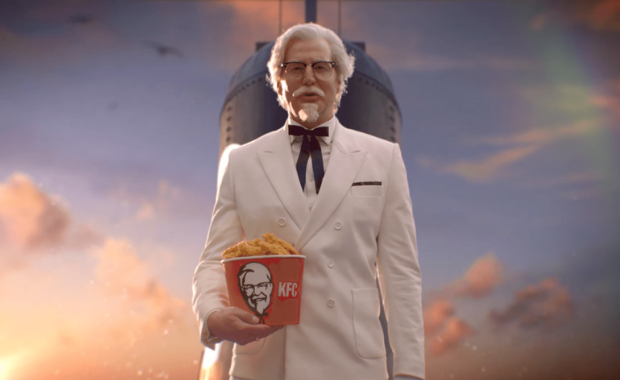Entrepreneurs
7 Inspiring Lessons Colonel Sanders Can Teach Us About Entrepreneurship

Colonel Sanders was rejected exactly 1009 times before he was able to sell his KFC recipe successfully. In addition to this, he failed at every job he even turned his hand to during his life. After a lifetime of facing failure after failure, he finally sold KFC at the ripe old age of 75.
In this blog, we’ll be covering seven of the inspiring lessons that the Colonel’s entrepreneurial journey can teach us, and whether you’re 25 or 75 years old, there’s something here for any budding entrepreneur.
Lesson #1: Failure Breeds Success
As I mentioned, the Colonel was rejected over a thousand times before he was successfully able to sell his Kentucky Fried Chicken recipe – that’s a lot of rejection. Not only that, but Sanders failed miserably at every other career he ever attempted. Between the ages of ten and forty, Sanders tried his hand at the following, among other things:
- Streetcar conducting
- Farming
- Law
- Sales
- Fire fighting
This just goes to show that no matter how much you experience failure, there’s still time, no matter how old you are, which brings us neatly onto our next lesson.
“I’ve only had two rules. Do all you can and do it the best you can. It’s the only way you ever get that feeling of accomplishing something.” – Colonel Sanders
Lesson #2: It’s Never Too Late
When Colonel Sanders was 75, he finally sold KFC for $2 million (roughly $15 million today). Can you imagine experiencing such a win, after a lifetime of losing? I’ve met people during my career who think they’re over the hill by the time they’re in their thirties! Yet the Colonel ploughed on in the face of adversity and ended up as the founder and face of a brand we’re still so familiar with over five decades later.
Lesson #3: The Past is In the Past
In order to be successful as an entrepreneur, many people simply need to learn that the past is in the past, and it will only define your future chance of success if you allow it to. It doesn’t matter how many times you’ve failed, where you’ve come from or what negative things you’ve experienced or done in the past.
Your past doesn’t hold the keys to your future success. The Colonel failed at every career he ever attempted. He even spent much of his life in an unhappy marriage, ending in divorce and had to provide for three children by the time he was nineteen. For most, that’d be enough for them to settle down into an unfulfilling career, but the Colonel pressed on with faith in his own abilities and principles.
Lesson #4: Giving Up is the Only Way to Fail
Failure is a natural side effect of life; the story of Kentucky Fried Chicken tells us that quitting is the only failure. If you have the same outlook and faith in what you’re trying to do, the possibility of significant success is never off the table. Even when you see the clock is ticking and the days and years are flashing by, there’s no time limit on being a success. Never stop searching for that light at the end of the tunnel.
Lesson #5: A Fresh Start is Sometimes All You Need
It’s clear to us now that cooking was a passion of the Colonel’s, but he didn’t discover his enthusiasm until much later in his life. It’s only through having the courage to fail and start over, again and again, that he was able to discover his real calling.
When you try to succeed at multiple disciplines, it’s a sure-fire way to burn yourself out. The start is always the hard part, and for most, the idea of doing it over and over again, in their 50s, 60s and 70s would be absolutely exhausting. The energy and passion that the Colonel showed by doing this well into his seventies is an inspiring lesson to any entrepreneur.
Lesson #6: Take a Leap of Faith
It’s no great shock to learn that following your heart’s desire is often the key to success, happiness and contentment. How is it then, that so many of us won’t chase after what we truly want from life? Sitting back and relaxing into your comfort zone means that many of us don’t realise how vital passion and desire really are. In the end, the pursuit of a passion will make anyone happy, contented and prosperous.
“One has to remember that every failure can be a stepping stone to something better.” – Colonel Sanders
Lesson #7: Keep it Simple
It seems crazy to say it, but Kentucky Fried Chicken started by selling chicken on the side of the road. After selling his recipe, the business grew rapidly, and these days it’s commonplace to see KFC franchises in countries all over the world – 145 to be exact. The lesson here is never to be afraid of keeping things simple. So long as you’re willing to start, work hard and keep at it, things will grow.
It’s often the case that would-be entrepreneurs will put off starting their venture, launching their website or whatever it might be because they simply don’t believe they are big enough to make a start.
Business
The Simple Security Stack Every Online Business Needs
Most small businesses are exposed online without realising it. This simple protection stack keeps costs low and risks lower.

Running a business online brings speed and reach, but it also brings risk. Data moves fast. Payments travel across borders. Teams log in from homes, cafés, and airports. (more…)
Business
Entrepreneur’s Guide to Pay Stubs: Why Freelancers and Small Business Owners Need a Smart Generator
If you’re self-employed and scrambling for income records at the last minute, a smart pay stub generator quietly solves the problem.

For freelancers and small business owners, managing income documentation is often an afterthought until it becomes urgently necessary. (more…)
Change Your Mindset
The Silent Skill That Makes People Respect You Instantly
What truly earns respect and why most people go about it the wrong way

Everybody craves respect but not everyone earns it. Some people believe that a title, years of experience, or a position of authority automatically entitles them to respect. (more…)
Entrepreneurs
The Essential Skills Every Entrepreneur Needs In 2026
Success in the digital age isn’t about luck. It’s about mastering the skills that separate dreamers from doers.

When I was 22 years old, I started my first side hustle as a ghostwriter. (more…)
-

 News2 weeks ago
News2 weeks agoBrandon Willington Builds 7-Figure Business by Ignoring Almost Everything
-

 Health & Fitness2 weeks ago
Health & Fitness2 weeks agoWhat Minimalism Actually Means for Your Wellness Choices
-

 Did You Know2 weeks ago
Did You Know2 weeks agoWhy Most Online Courses Fail and How to Fix Them
-

 Business2 weeks ago
Business2 weeks agoIf Your Business Internet Keeps Letting You Down, Read This
-

 Business5 days ago
Business5 days agoEntrepreneur’s Guide to Pay Stubs: Why Freelancers and Small Business Owners Need a Smart Generator
-

 Business4 days ago
Business4 days agoThe Simple Security Stack Every Online Business Needs
-

 Finances4 days ago
Finances4 days agoWhy Financial Stress Is One of the Biggest Barriers to Personal Growth
-

 Scale Your Business3 days ago
Scale Your Business3 days ago5 Real Ways to Grow Your User Base Fast

























